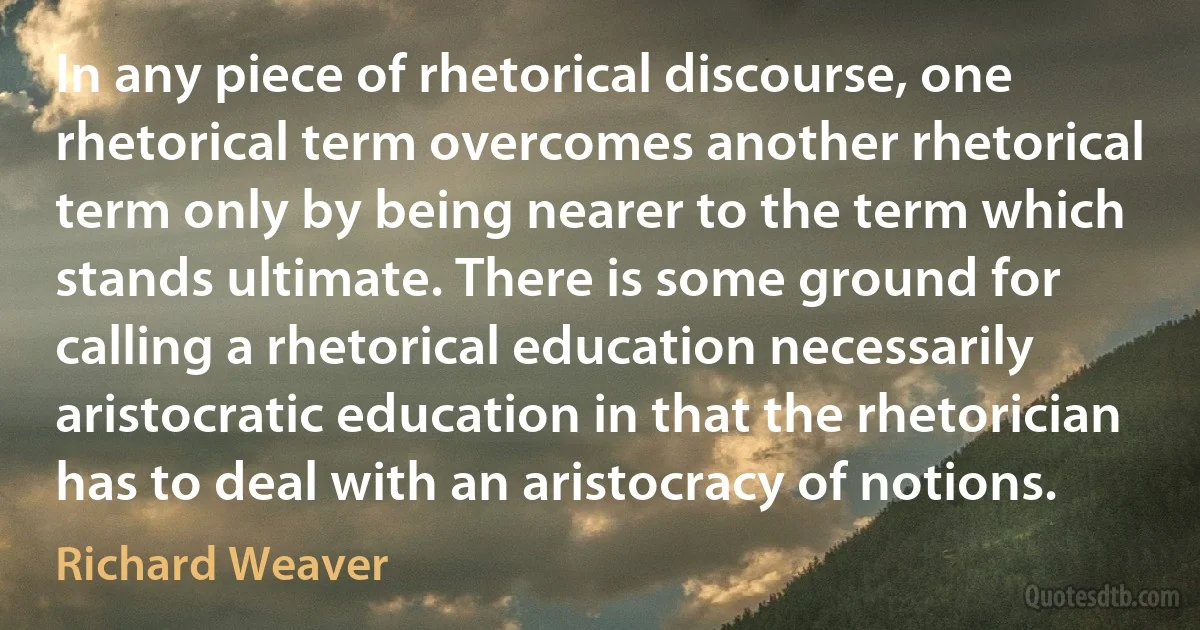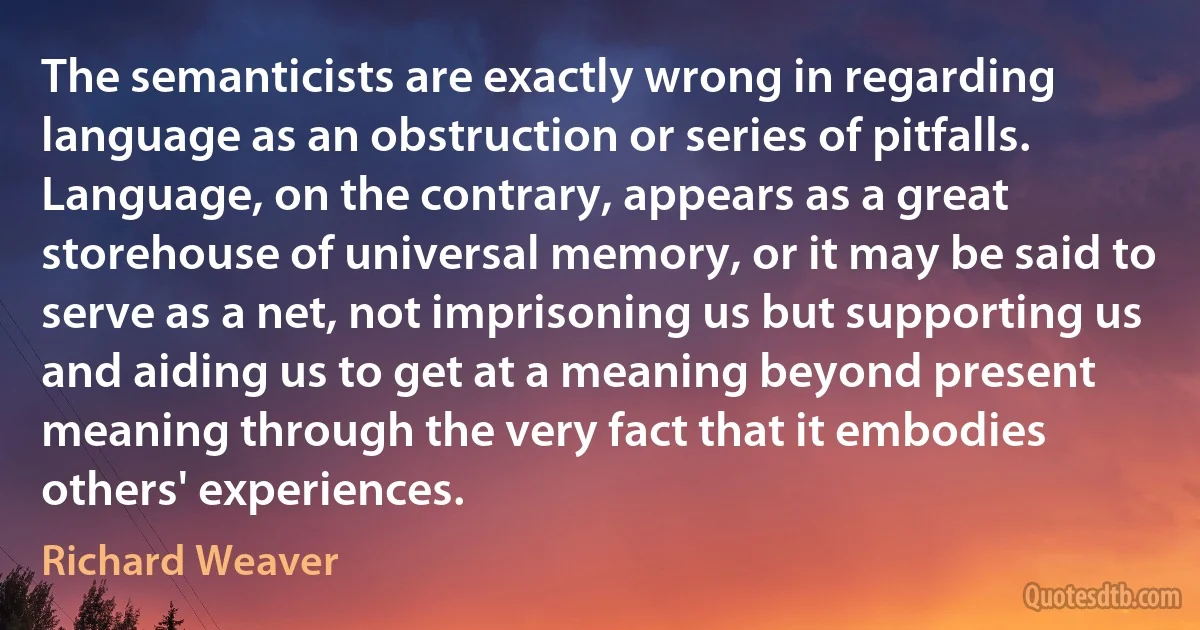Richard Weaver quotes - page 2
A prejudice may be an unreasoned judgment, he [Hibben] pointed out, but an unreasoned judgment is not necessarily an illogical judgment. ... First, there are those judgments whose verification has simply dropped out of memory. ... The second type of unreasoned judgments we hold is the opinions we adopt from others ... The third class of judgments in Professor Hibben's list comprises those which have subconscious origin. The material that furnishes their support does not reach the focal point of consciousness, but psychology insists upon its existence.

Richard Weaver
The man of frank and strong prejudices, far from being a political and social menace and an obstacle in the path of progress, is often a benign character and helpful citizen. The chance is far greater, furthermore, that he will be more creative than the man who can never come to more than a few gingerly held conclusions, or who thinks that all ideas should be received with equal hospitality. There is such a thing as being so broad you are flat.

Richard Weaver
Try to imagine a man setting out for the day without a single prejudice. ... Inevitably he would be in a state of paralysis. He could not get up in the morning, or choose his necktie, or make his way to the office, ... or, to come right down to the essence of the thing, even maintain his identity.

Richard Weaver
There are some despotic governments so filled with a feeling of insecurity that they regard the free life of culture as a threat to their existence. ... On the other extreme is the kind of popular government which is so distrustful of all forms of distinction that it sees even in the cultivated individual a menace to its existence. Such states are likely to maintain a pressure which discourages cultural endeavor, although the pressure may be exerted through social channels.

Richard Weaver
Many of us who read the literature of social science as laymen are conscious of being admitted at a door which bears the watchword "scientific objectivity” and of emerging at another door which looks out upon a variety of projects for changing, renovating, or revolutionizing society. In consequence, we feel the need of a more explicit account of how the student of society passes from facts to values or statements of policy.

Richard Weaver
The most important thing about the gentleman was that he was an idealist. ... He was bred up to a code of self-restraint which taught resistance to pragmatic temptation. He was definitely a man of sentiment, who refused to put matters on a basis of materialism and self-aggrandizement.

Richard Weaver
It is characteristic of the barbarian ... to insist upon seeing a thing "as it is." The desire testifies that he has nothing in himself with which to spiritualize it; the relation is one of thing to thing without the intercession of the imagination. Impatient of the veiling with which the man of higher type gives the world imaginative meaning, the barbarian and the Philistine, who is the barbarian living amid culture, demands the access of immediacy. Where the former wishes representation, the latter insists upon starkness of materiality, suspecting rightly that forms will mean restraint.

Richard Weaver
The member of a culture ... purposely avoids the relationship of intimacy; he wants the object somehow depicted and fictionalized. ... He is embarrassed when this is taken out of its context of proper sentiments and presented bare, for he feels that this is a reintrusion of that world which his whole conscious effort has sought to banish. Forms and conventions are the ladder of ascent. And hence the speechlessness of the man of culture when he beholds the barbarian tearing aside some veil which is half adornment, half concealment.

Richard Weaver
The eloquent Lysias, posing as a non-lover, had concealed designs upon Phaedrus, so that his fine speech was really a sheep's clothing. Socrates discerned in him a "peculiar craftiness.” One must suspect the same today of many who ask us to place our faith in the neutrality of their discourse.

Richard Weaver
Modern publication wishes to minimize discussion. ... Phrases ... are carefully chosen not to stimulate reflection, but to evoke stock responses of approbation or disapprobation. Headlines and advertising teem with them, and we seem to approach a point at which failure to make the stock response is regarded as faintly treasonable.

Richard Weaver



